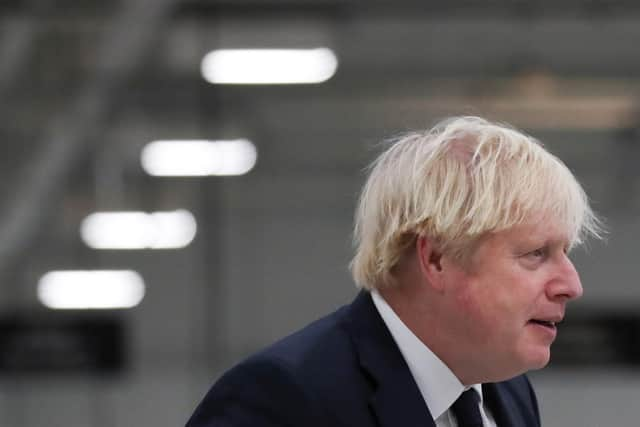Leading business figurehead accuses Government of saying 'very little' on how they intend to revive regional economies
Tony Danker, the Director General of the Confederation of British Industry (CBI), suggested Ministers had said “very little” on how they intend to revive regional economies outside of the South, as he voiced businesses’ calls for a “second round of conversations” on HS2 in the North, just days after plans for rail regeneration were dramatically revised.
Speaking on the first day of the CBI’s annual conference, Mr Danker told delegates: “The truth is that the UK long suffered from de-industrialisation.
Advertisement
Hide AdAdvertisement
Hide Ad“Since the 1980s, we let old industries die – offering little more than benign neglect for what got left behind – it was an economic policy that was at best ambivalent about levelling down.”


With the most productive parts of a sector, such as head offices, too often based in London and the South-East, the UK is operating as a “branch line economy”, he argued.
He said: “What the UK needs to really level up is economic growth in every place. Growth that in turn provides better-paid jobs, skilled work, firm-level success and that creates the kind of virtuous circle that really helps a place to prosper.
“Too relaxed about a brain drain as young people leave home to chase better wages and jobs. Wages higher in the South than the North. Multinational corporations overwhelmingly located in the South-East where new industries thrived. Shuttered high streets in towns and cities left behind. We have spent decades living with these consequences.”
Advertisement
Hide AdAdvertisement
Hide AdSpeaking to Sky News before his speech, he claimed the Government had not yet detailed how better jobs and skills can be created in the North to complement the “hub of economic activity as the South”.
He said: “Now that isn’t easy for government to do, they can’t do it alone. But we’ve really heard very little from the Prime Minister and the Government yet on how to do that.”
He also refused to “sugarcoat” businesses’ response to the Integrated Rail Plan, which he described in the North of England as “disappointed” and “upset”.
“I think what they are hoping for is that the Prime Minister, the Government, the Transport Secretary, will get into a second round of conversations on it,” he added.
Advertisement
Hide AdAdvertisement
Hide AdMr Danker’s sentiments on the rail plans, which were unveiled on Thursday last week, were echoed by Labour leader Sir Keir Starmer, who said cities and communities outside of the South-East need to be given the powers to be “economic powerhouses”.
“Which is why it is so devastating to see the Government rip up its promises in relation to HS2 and Northern Powerhouse Rail,” Sir Keir said.
“These are not just train lines. They are lifelines for businesses and commuters.
“And it’s not just a betrayal of the North, it’s a betrayal of the economic potential of those regions, denying them the growth that your Director General, Tony Danker, has championed so effectively,”
Advertisement
Hide AdAdvertisement
Hide AdDespite the scepticism from Sir Keir and Mr Danker, the Prime Minister appeared to criticise the response to last week’s Integrated Rail Plan, which confirmed the scrapping of HS2 to Leeds and the scaling back of Northern Powerhouse Rail across the Pennines, claiming some media coverage had “missed the point”.
The Government faced complaints from a number of its own MPs over the proposals, with calls from across the political spectrum for the decisions to be reconsidered before Mr Danker spoke yesterday.
“I must say that I thought, as a lesson in what happens when you tell the British people we’re investing £96bn in the biggest railway programme for 100 years, some of the coverage was missing the point, let me put it that way,” Mr Johnson said.
